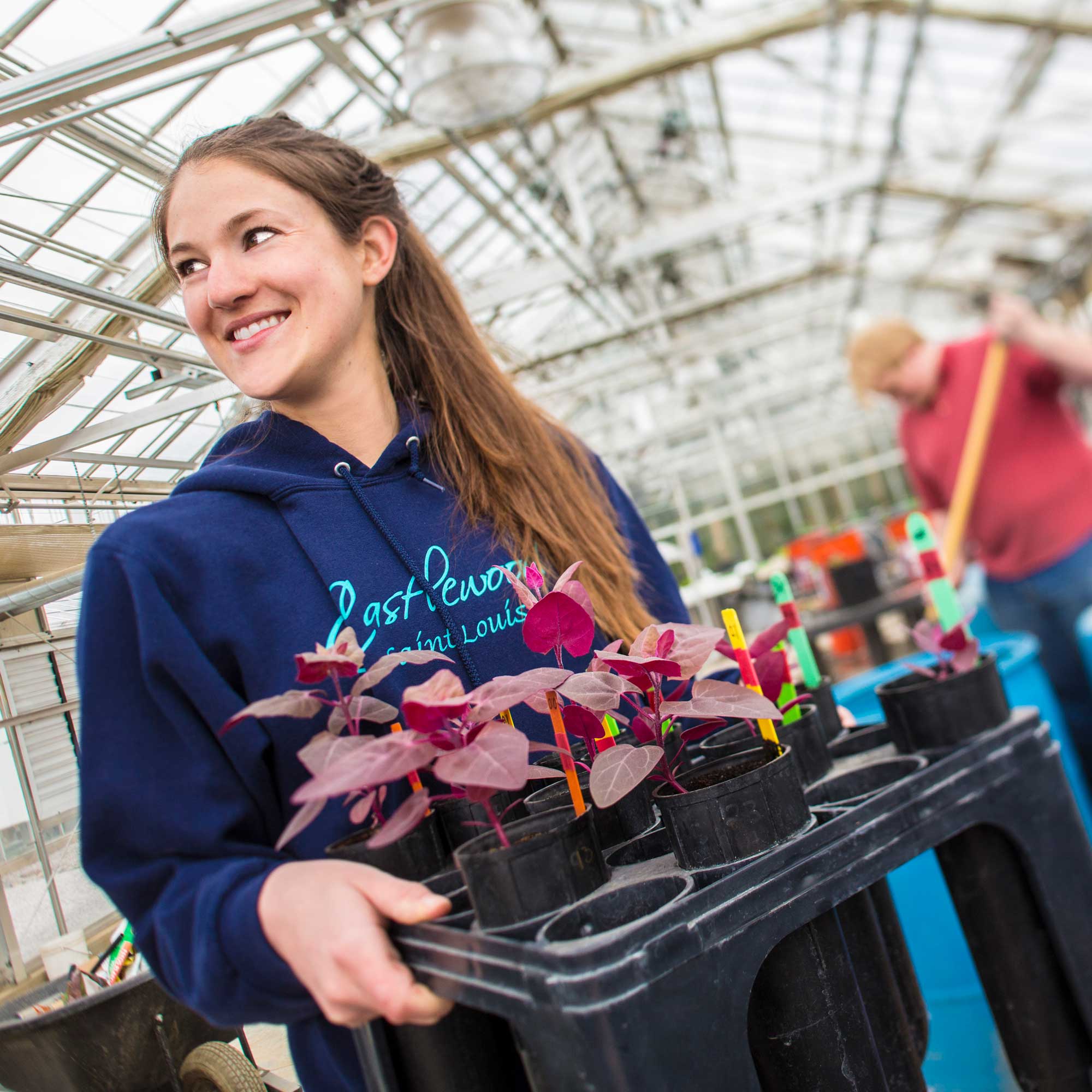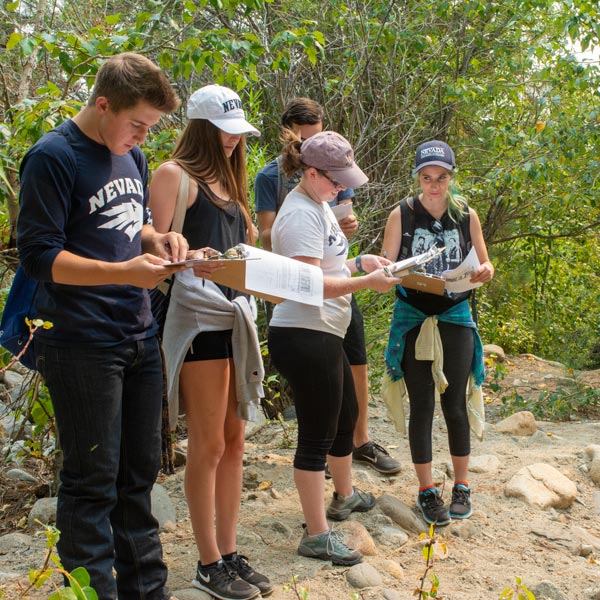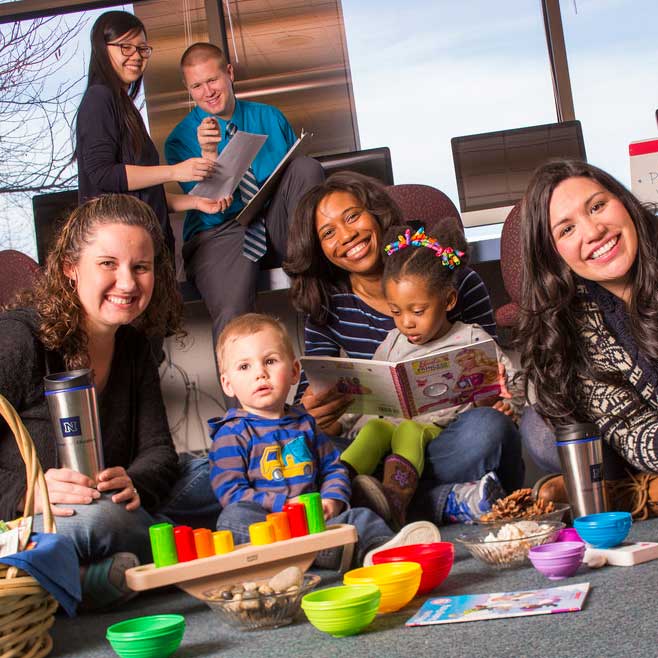In this edition
- Research suggests some trees have potential for immortality
- University and 4-H alum works to improve school-based agriculture education in Ghana
- Nevada researcher studying gut microbiomes in hopes of improving health
- University celebrates sharing of bountiful harvests this Thanksgiving
- University offers new dual-degree program in agricultural science and economics
About our College
A founding college of the University, we have a long tradition of excellence in teaching, research and engagement programs that benefit the health and economic vitality of Nevada. We offer programs in:
- agriculture, horticulture, rangeland and veterinary sciences
- biochemistry and molecular biology
- children, youth and families
- community and economic development
- health and nutrition
- natural resources and environmental science
Research suggests some trees have potential for immortality
University researcher teams with Italian collaborator in new paper
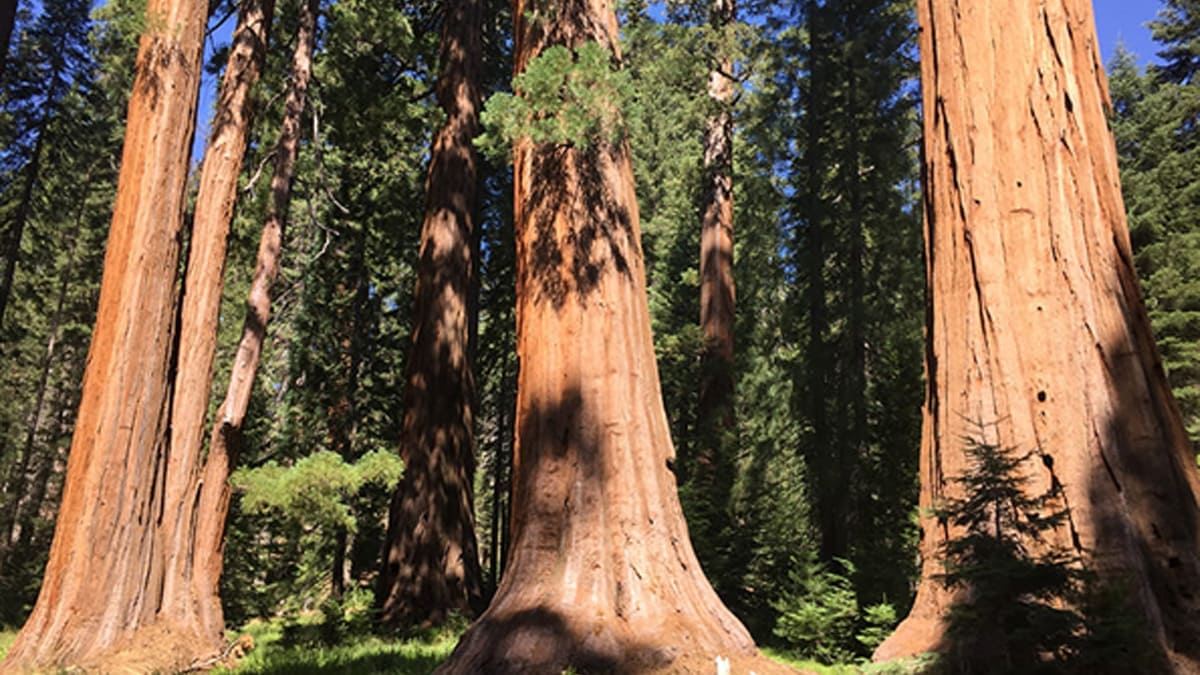
Giant sequoias are the third longest-living tree species. One of the oldest known specimens, in the Converse Basin Grove of the Giant Sequoia National Monument in the Sierra Nevada of California, was at least 3,220 years old. Photo by Jarmila Pittermann.
Large, majestic trees are iconic symbols of great age among living organisms, yet published evidence suggests that trees do not die because of genetically programmed age deterioration, but rather are killed by an external agent or a disturbance event. And, they can be a record of thousands of years of environmental change, especially in Nevada.
In their paper, Professor Franco Biondi, whose work is supported in part by our College’s Experiment Station unit, and co-author Gianluca Piovesan, a professor at the University of Tuscia, Italy, find that:
- Trees could be immortal - The cambium, which is the growth tissue area between the bark and the wood, appears immune to age-caused deterioration or mortality. Instead, droughts, insect outbreaks, bacteria, viruses and fungi, as well as human impacts, cause tree mortality.
- Great Basin trees don’t fit the pattern - The idea of succession, that fast-growing trees give way to old, slow-growing trees, just isn't the case on most Great Basin mountains.
- Tree histories can shape the future - Trees are archives of natural and human impacts on our world. We can use that information to update ecological theories, and better manage, protect and restore landscapes.
Seeing the forest for the trees
“Ancient trees are indicative of the enduring landscapes that surround us and a reminder of the value of having such long-lived organisms within them.” –Professor Franco Biondi
University and 4-H alum works to improve school-based agriculture education in Ghana
Connor Billman teaching youth and helping rural Ghana communities grow food through prestigious International Agricultural Education Fellowship
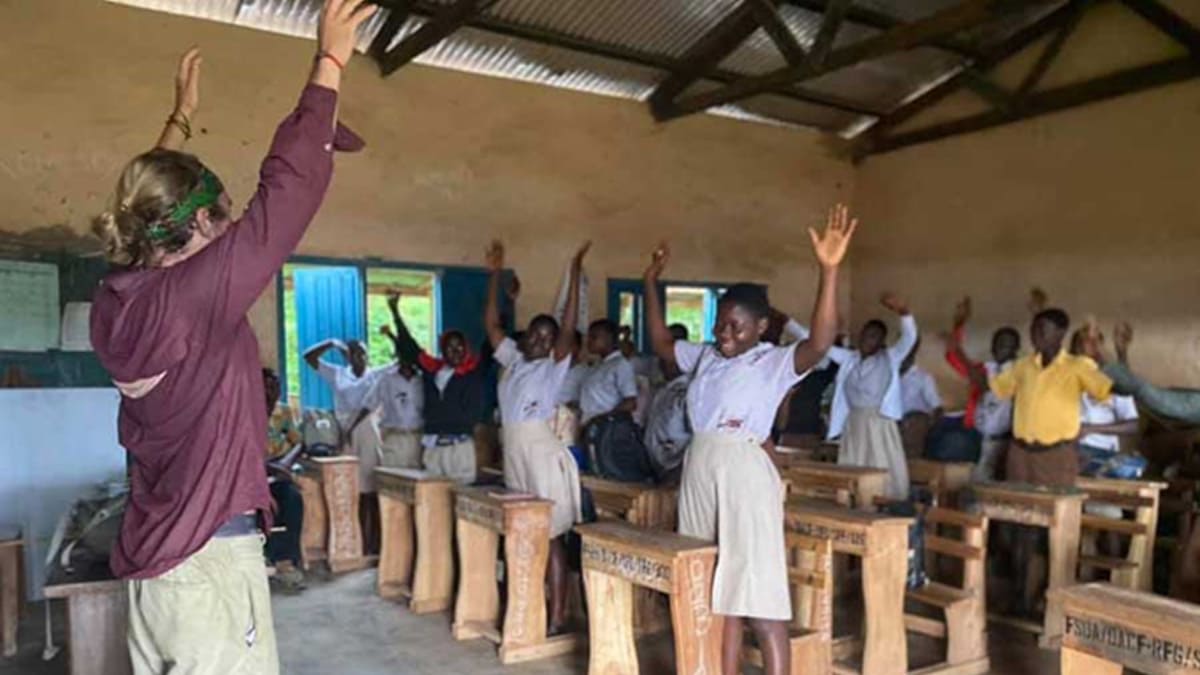
University and Nevada 4-H alum Connor Billman teaches youth in Ghana as part of the International Agricultural Education Fellowship Program. Photo courtesy of the Fellowship Program.
A recent University and Nevada 4-H alum is not wasting time putting his agricultural science education to good use. A 2020 graduate of our College, Connor Billman is serving for a year as a 4-H leader, agriculture teacher, teacher trainer and Extension agent in Ghana.
The work is part of the International Agricultural Education Fellowship Program of the Norman Borlaug Institute for International Agriculture. Only nine applicants were chosen to receive the prestigious fellowship in this inaugural year.
Billman’s work, funded in part by Extension’s 4-H Youth Development Program in Douglas County, is part of an effort to empower youth by developing in them leadership and entrepreneurship skills through 4-H, as well as to help the country's farmers.
"The basis of the program is to elevate small-holder farmers out of poverty and hunger through agricultural science," Billman said. "The way that this is approached is through hands-on learning."
Billman credits his experiences in 4-H, in which he raised and showed pigs and sheep, and his time at the University, for his desire and ability to positively impact Ghanaian youth and agriculture.
Empowering youth
"I believe that as humans we are a bit like air – we fill the space of the container given to us. In 4-H and as a teacher, my motivation is to give students the opportunity to step into larger containers and develop skills that empower them to be successful." –Alum Connor Billman
Nevada researcher studying gut microbiomes in hopes of improving health
Aim is to uncover how Nevadans’ lives affect the microbes in their digestive tract and their health
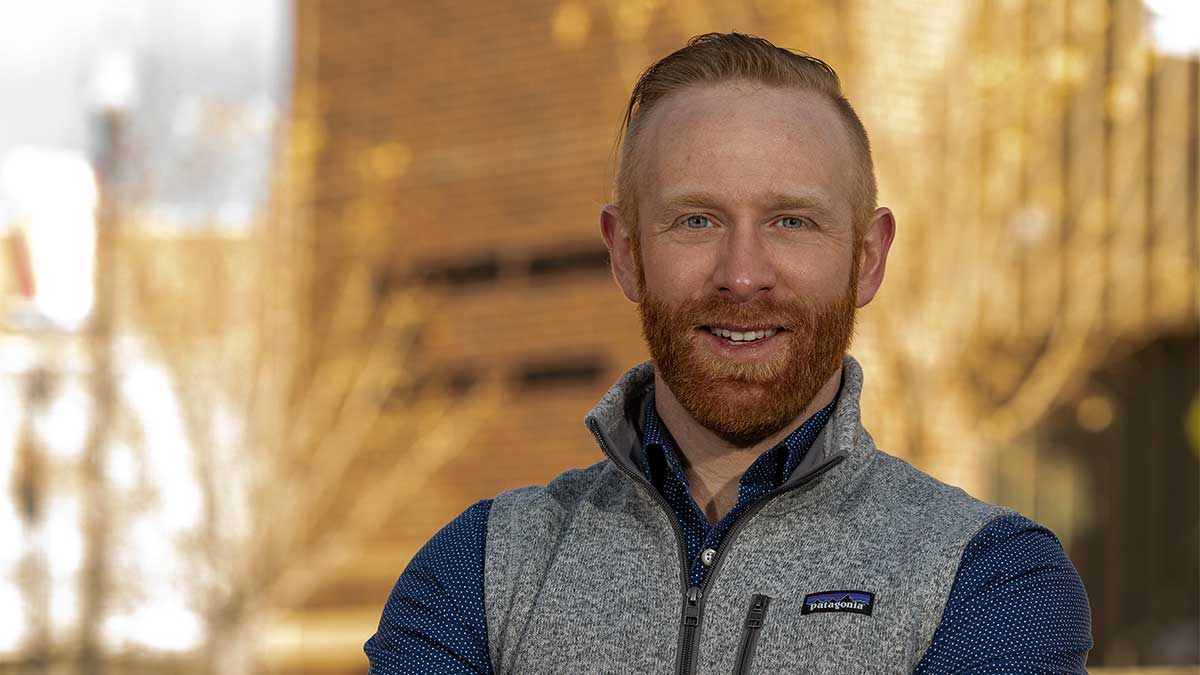
Steven Frese is researching bacteria in human guts to inform healthier lives. Photo by Robert Moore.
With over 95% of the world’s population having at least one health problem and with some populations impacted more severely by health inequities than others, Assistant Professor Steven Frese, with support from our College’s Experiment Station unit, is studying how the trillions of bacteria, fungi and other microbes present in the digestive tract affect the health of Nevadans.
Participants in the anonymous study complete surveys about their lifestyle, what they eat, and their exercise habits and medical history. They also donate a fecal sample. When the study is complete, participants will have access to their own results at no cost to them.
Their results will help Frese examine how diet, lifestyle and the microbiome interact, and how social networks and families, homelessness, and food insecurity affect Nevadans’ microbiome and health.
Study materials are available in English and Spanish, and Frese is prepared to translate them into other languages, launch targeted recruitment efforts and partner with Extension offices to provide sample drop-off locations across the state.
“With coolers, icepacks and mailing labels,” Frese said, “we can capture urban-rural divide demographics that are important to Nevada.”
Telling Nevada’s story
“Many of these studies aren’t representative of the socioeconomic, racial and ethnic composition of the country. We hope that with this study, we will be able to characterize the microbiome of people in Nevada in a more representative way. We want to tell the story of what the microbiome of Nevadans actually is, rather than guess from other populations.” -Assistant Professor Steven Frese
University celebrates sharing of bountiful harvests this Thanksgiving
Desert Farming Initiative and Demonstration Orchard help provide for food-insecure in northern and southern Nevada
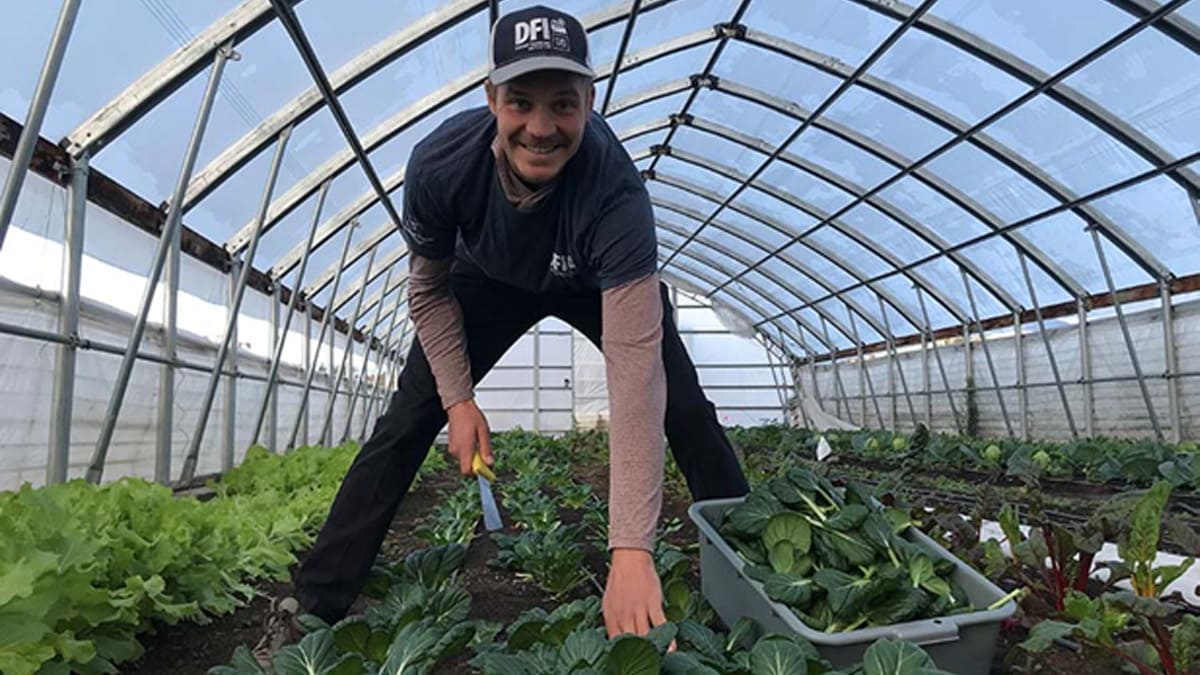
Tanner Petrilla, Desert Farming Initiative farm production manager, does some harvesting in a hoop house this month. Photo by Claire Holden.
It’s the season of harvest and giving, and the College has shared its bounty in both northern and southern Nevada. Through the College’s efforts, and the efforts of its Extension and Experiment Station, the College has grown over 25,780 pounds of food this year, with more than $13,500 worth going to food pantries and those in need. The produce is grown as part of the research and education programs at the Desert Farming Initiative in Reno and the Research Center & Demonstration Orchard in North Las Vegas.
The Desert Farming Initiative harvested over 13,000 pounds of produce this year, with over 3,000 pounds valued at about $5,000 going to food pantries that partner with the Initiative. The Research Center & Demonstration Orchard in North Las Vegas harvested 10,425 pounds of produce, with 5,135 pounds of produce valued at $8,500 being given away free.
Collaborating to serve our communities
“This is a great example of our state’s two universities working together to conduct research and serve our communities. For those who have not yet visited the Orchard, we encourage them to do so. It’s really quite impressive.” –Extension Southern Area Director Eric Killian
University offers new dual-degree program in agricultural science and economics
College of Ag and College of Business collaborate to help grow state’s ag industry
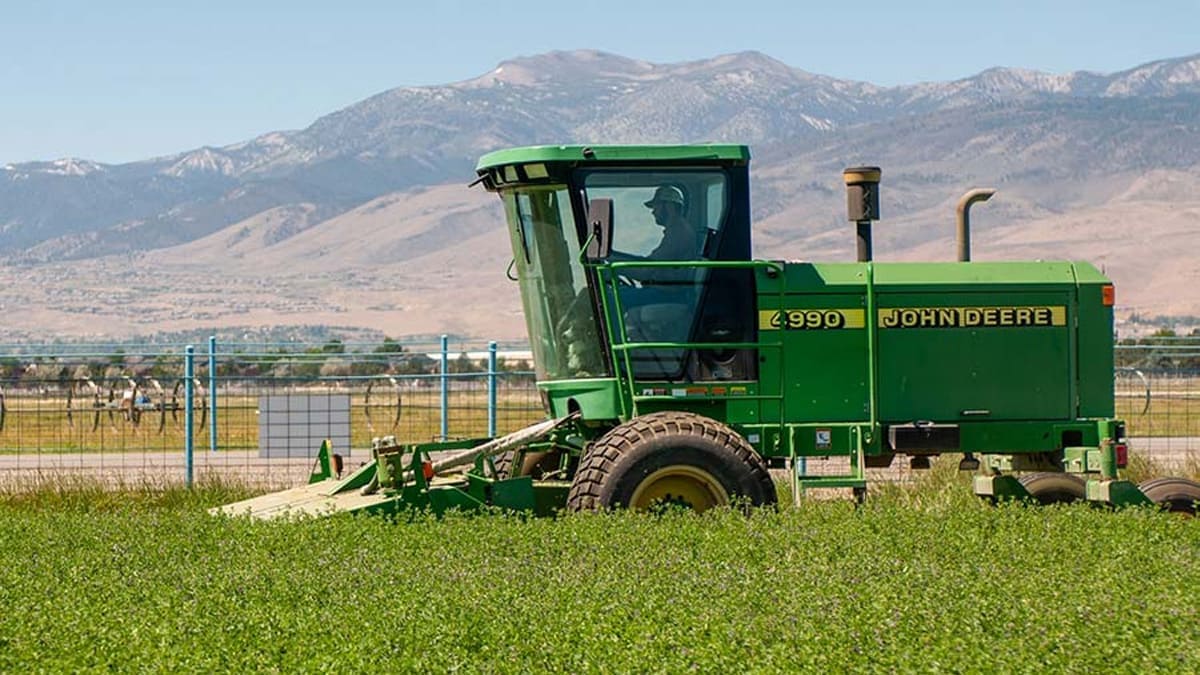
Alfalfa grows in a field in northern Nevada. The new dual-degree program in agricultural science and economics is aimed at growing the state’s ag industry. Photo by Robert Moore.
In order to succeed in agriculture, producers not only need to understand the science of growing crops and animals, but also the economics of running a business. The University has created a new program to allow students to obtain both a Bachelor of Science in agricultural science and a Bachelor of Arts in economics in four years.
The program is a collaboration of the University’s College of Business and the College of Ag. Agriculture is rapidly expanding in Nevada, with a 60.4% increase in jobs over the past decade, compared to just a 7.4% increase nationally.
The dual-degree program:
- Ensures producers have what they need to succeed — both agriculture science knowledge and business acumen.
- Equips students to provide for the world through their passion for agriculture and a powerful understanding of markets, trade and statistics.
- Provides the state with experts who can analyze data, national and international trade, and public policy related to agriculture, and help guide the industry.
- Prepares graduates to make positive impact in fields relating to agriculture and economics, or to continue their education in graduate school in the domain of agricultural economics.
Serving Nevada’s growing agriculture industry
“Nevada needs more professionals who can serve this growing industry and provide producers with the data and analysis they need. Graduates of this new dual-degree program will help fill that gap.” –Dean of Business Greg Mosier
Innovating for Nevada
Our programs work together to make an impact
Our teaching, research and engagement programs are intertwined and complement one another. Faculty who teach on campus also conduct research as part of our Experiment Station, allowing students to learn about and participate in research. Extension faculty engaging with communities identify research needs, as well as join Experiment Station faculty to conduct research. Faculty on campus help to develop Extension programs in communities.
